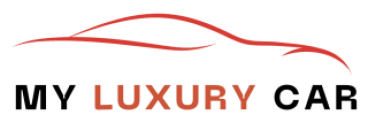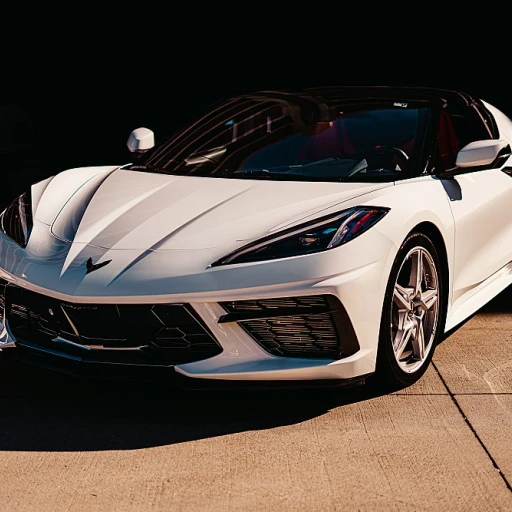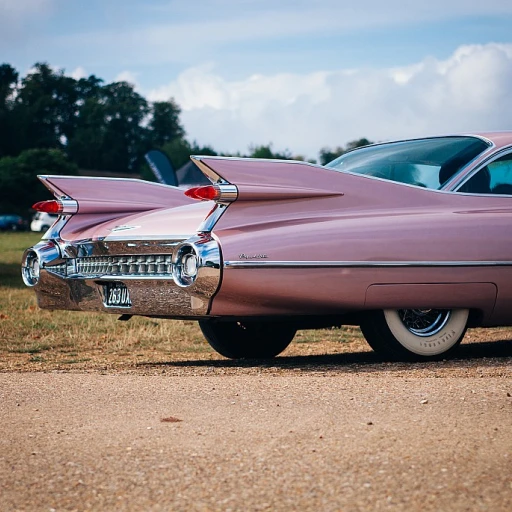
Understanding insurance costs for sports cars
What Drives Up the Price of Sports Car Insurance?
Owning a sports car is a statement of passion and prestige, but it often comes with higher insurance rates. The cost of insuring a sports car or luxury vehicle is influenced by several factors that set these cars apart from standard models. Understanding these elements can help you make informed decisions about your auto insurance policy and manage your average annual expenses.
- Performance and Power: Sports cars like the Ford Mustang or Dodge Challenger are built for speed and agility. Their high-performance engines and advanced features can increase the risk of accidents, leading insurance companies to charge higher premiums.
- Repair and Replacement Costs: Luxury vehicles often require specialized parts and service. This means that full coverage or even basic coverage for these cars is more expensive, as repairs can be costly and time-consuming.
- Theft Risk: Sports cars are attractive targets for theft. Insurance companies factor in the likelihood of theft when determining your insurance rates, especially for high-value vehicles.
- Driver Profile: Your driving history, age, and location (state) all impact your insurance quotes. Younger drivers or those with a history of claims may see higher rates, especially when insuring sports cars.
Insurance companies like USAA, State Farm, Geico, Safeco, Liberty Mutual, and others each have their own company average for sports car insurance. Comparing quotes from multiple providers is essential to find the best auto insurance for your needs.
It’s also important to consider the type of coverage you need. Full coverage policies offer more protection but come at a higher cost. Some owners opt for minimum coverage to save on premiums, but this can leave you exposed to greater financial risk.
For a deeper look at the ongoing costs of owning a high-performance vehicle, including maintenance expenses that can impact your overall budget, you may want to read about the true cost of a Ferrari oil change. This can help you understand how insurance fits into the broader picture of sports car ownership.
Why luxury car owners seek affordable insurance
Why affordable coverage matters for luxury sports car owners
Owning a luxury sports car is a statement of passion and achievement. Yet, when it comes to auto insurance, even the most exclusive vehicles can face surprisingly high costs. Many owners seek affordable insurance not just for savings, but to ensure their prized cars are protected without unnecessary financial strain. Luxury sports cars, like the Ford Mustang or Dodge Challenger, often come with higher insurance rates due to their performance capabilities and repair costs. Insurers consider factors such as the vehicle's value, average annual mileage, and even the state where the car is registered. For example, full coverage policies for high-performance cars can be significantly more expensive than for standard vehicles, especially if you opt for comprehensive or collision coverage.- Cost efficiency: Even for those accustomed to premium experiences, overpaying for car insurance is never appealing. Comparing quotes from top insurance companies like USAA, State Farm, Geico, and Liberty Mutual can reveal substantial differences in policy rates.
- Tailored coverage: Luxury car owners often require more than just basic liability. Full coverage, including protection for custom parts or high-value accessories, is essential. However, it’s possible to find policies that balance robust protection with reasonable premiums.
- Driving habits: Many sports car owners drive less frequently or only in certain seasons. Some insurance companies offer discounts for low annual mileage or safe driving records, which can further reduce the average cost to insure a sports car.
Top sports cars with the lowest insurance premiums
Affordable Sports Cars That Won’t Break the Bank on Insurance
Finding a sports car that offers both thrilling performance and manageable insurance rates is possible, even for luxury car owners. Insurance companies like State Farm, USAA, Geico, and Liberty Mutual often consider factors such as the car’s safety features, repair costs, and theft rates when determining premiums. Some sports cars stand out for their surprisingly low average annual insurance cost, making them attractive for those who want excitement without excessive expenses.- Ford Mustang: The Mustang is a classic American sports car that consistently ranks among the best for affordable insurance. Its widespread availability, moderate repair costs, and strong safety ratings contribute to lower insurance rates. Many insurance companies, including State Farm and Geico, offer competitive quotes for full coverage on this vehicle.
- Dodge Challenger: Known for its bold design and powerful engine options, the Challenger also benefits from reasonable insurance premiums. The average annual cost to insure a Challenger is often lower than other high-performance vehicles, especially with a clean driving record and the right insurance policy.
- Chevrolet Camaro: The Camaro offers a blend of performance and value, with insurance rates that are generally below the company average for sports cars. Features like advanced safety technology and moderate repair costs help keep premiums in check.
- Mazda MX-5 Miata: This lightweight, agile sports car is not only fun to drive but also among the least expensive to insure. Its lower horsepower and excellent safety record make it a favorite for those seeking affordable auto insurance coverage.
- Subaru BRZ / Toyota GR86: These twin models are praised for their balanced handling and reliability. Insurance companies often offer favorable rates due to their strong safety features and lower-than-average repair costs.
| Sports Car | Average Annual Insurance Cost (USD) | Notable Insurance Providers |
|---|---|---|
| Ford Mustang | $1,600 – $2,000 | State Farm, Geico, USAA |
| Dodge Challenger | $1,700 – $2,100 | Liberty Mutual, State Farm, Geico |
| Chevrolet Camaro | $1,650 – $2,050 | USAA, Geico, Safeco |
| Mazda MX-5 Miata | $1,400 – $1,800 | State Farm, USAA, Geico |
| Subaru BRZ / Toyota GR86 | $1,500 – $1,900 | Geico, State Farm, Liberty Mutual |
How to further reduce your sports car insurance
Smart Strategies to Lower Your Sports Car Insurance
Finding affordable insurance for your sports car isn’t just about picking the cheapest policy. Luxury car owners can take several practical steps to reduce their insurance rates without sacrificing the coverage that protects their investment.- Choose Higher Deductibles: Opting for a higher deductible can lower your premium. Just make sure you’re comfortable with the out-of-pocket cost if you need to file a claim.
- Bundle Policies: Many insurance companies, including State Farm, Liberty Mutual, and USAA, offer discounts when you combine your auto insurance with other policies like home or umbrella coverage.
- Maintain a Clean Driving Record: Insurance rates for sports cars are highly influenced by your driving history. Avoiding traffic violations and accidents helps keep your premiums low.
- Limit Annual Mileage: Some insurers offer lower rates if you drive your sports car less than the average annual mileage. If your vehicle is not your daily driver, let your insurance company know.
- Install Security Features: Advanced anti-theft systems and tracking devices can reduce the risk of theft, which may lead to discounts on your insurance policy.
- Shop for Quotes Regularly: Rates can vary significantly between providers like Geico, Safeco, and State Farm. Comparing quotes ensures you’re getting the best deal for full coverage or liability-only policies.
- Consider Usage-Based Insurance: Some companies offer telematics programs that track your driving habits. Safe drivers can benefit from lower rates through these programs.
Factors That Influence Your Premiums
Insurance companies look at more than just the make and model of your sports car. They assess your state, age, credit score, and even your zip code. For example, the average annual cost to insure a Ford Mustang or Dodge Challenger can vary widely depending on where you live and your driving profile. Full coverage in high-risk states will be more expensive, while some states offer lower company averages for sports cars.Working with the Right Insurance Provider
Not all insurance companies treat sports cars the same. USAA, State Farm, and Liberty Mutual are often cited for competitive rates and strong customer service for luxury and sports vehicles. Some providers specialize in high-value cars and offer tailored policies that balance cost and coverage. Always read full policy details and ask about discounts specific to sports car owners. By staying proactive and informed, you can enjoy the thrill of your sports car while keeping insurance costs in check.Comparing insurance providers for luxury sports cars
Key Factors When Comparing Providers
Choosing the right insurance company for your sports car is about more than just the lowest price. Luxury car owners often look for a balance between comprehensive coverage, responsive customer service, and competitive rates. Here are some important points to consider when comparing auto insurance providers for high-value vehicles:
- Coverage Options: Not all insurance companies offer the same level of protection. Full coverage is essential for sports cars, but check for extras like agreed value policies, OEM parts replacement, and roadside assistance.
- Company Reputation: Look for insurers with strong financial ratings and positive customer feedback. Companies like State Farm, USAA, Geico, and Liberty Mutual are often mentioned for their reliability and claims service.
- Specialized Experience: Some providers, such as USAA (for eligible members), have experience insuring high-performance vehicles and may offer tailored policies for sports cars like the Ford Mustang or Dodge Challenger.
- Discounts and Bundling: Ask about multi-policy discounts, safe driving rewards, and loyalty programs. Bundling your luxury car insurance with home or other vehicles can lower your average annual cost.
- State Regulations: Insurance rates can vary significantly by state. The company average for full coverage in one state may be much higher or lower than another, so always request quotes specific to your location.
Comparing Quotes and Policy Features
Getting multiple quotes is crucial. Use online tools or work with an independent agent to compare offers from top providers like State Farm, Geico, Safeco, and Liberty Mutual. Pay attention to:
- Deductibles and Limits: Higher deductibles can lower your premium, but make sure you can afford them in case of a claim.
- Coverage Exclusions: Read full policy details to understand what is and isn’t covered, especially for modifications or track use.
- Customer Service: Fast claims handling and support matter when you drive a high-value vehicle.
| Insurance Company | Best For | Notable Features |
|---|---|---|
| USAA | Eligible military members | Competitive rates, high customer satisfaction, tailored sports car policies |
| State Farm | Wide availability | Strong claims service, multi-policy discounts, local agents |
| Geico | Online convenience | Affordable rates, easy quote process, full coverage options |
| Liberty Mutual | Customizable policies | OEM parts coverage, accident forgiveness, new car replacement |
| Safeco | Bundling discounts | Flexible coverage, strong digital tools, good for multiple vehicles |
Ultimately, the best auto insurance for your sports car depends on your driving habits, vehicle value, and personal preferences. Comparing insurance companies side by side helps you find the right balance of cost, coverage, and service for your luxury vehicle.
Balancing luxury, performance, and insurance savings
Finding the Sweet Spot Between Performance and Premiums
Owning a luxury sports car is about more than just speed and style. It’s also about making smart decisions that balance your passion for driving with the realities of auto insurance costs. High-performance vehicles like the Ford Mustang or Dodge Challenger often come with higher insurance rates due to their power and repair costs. However, there are ways to enjoy the thrill of these cars without paying the most expensive premiums.
Key Factors That Influence Your Insurance Rates
- Vehicle Model and Value: Insurers look at the car’s make, model, and market value. Luxury sports cars with advanced safety features may get better rates, but high repair costs can push premiums up.
- Driving History: A clean driving record can help you secure lower insurance rates, even for high-performance vehicles.
- Coverage Choices: Opting for full coverage or higher liability limits increases your policy cost, but it also offers better protection for your investment.
- State Regulations: Where you live matters. Insurance rates can vary widely by state due to local laws, accident rates, and theft statistics.
Comparing Insurance Companies for the Best Value
Not all insurance companies treat luxury sports cars the same. Some, like USAA and State Farm, are known for offering competitive rates to qualified drivers, while others like Geico, Safeco, and Liberty Mutual may have different approaches to underwriting these vehicles. It’s important to get quotes from multiple providers and compare their company average premiums for your specific car and state.
| Insurance Company | Average Annual Premium (USD) | Best For |
|---|---|---|
| USAA | Varies by state | Military families, competitive rates |
| State Farm | Varies by vehicle | Strong customer service, wide coverage |
| Geico | Competitive for many sports cars | Discounts, online tools |
| Liberty Mutual | Depends on driving history | Customizable policies |
| Safeco | Competitive in select states | Bundling options |
Smart Choices for Luxury Car Owners
- Review your insurance policy annually to ensure you’re getting the best rates for your sports car.
- Consider higher deductibles to lower your premium, but make sure it fits your budget.
- Ask about discounts for safe driving, anti-theft devices, or bundling auto insurance with other policies.
- Read full policy details before committing, as coverage and exclusions can vary between insurance companies.
Ultimately, balancing luxury, performance, and insurance savings is about understanding your options and making informed decisions. By comparing quotes, adjusting your coverage, and maintaining a strong driving record, you can enjoy your sports car without overpaying for insurance.













